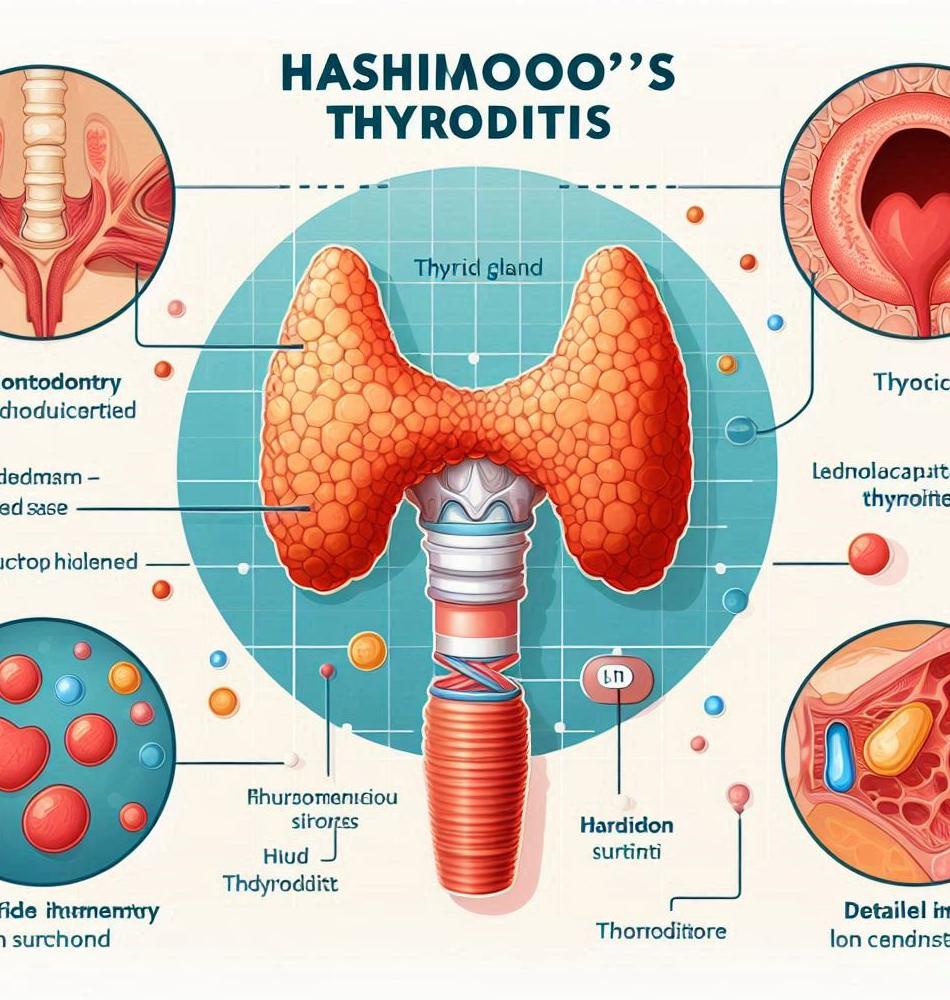Unraveling Autoimmune Thyroiditis: Is It the Same as Hashimoto's? 🔍
Autoimmune thyroiditis and Hashimoto's disease often create considerable confusion among individuals seeking clarity for their health conditions. If you or someone close to you is grappling with thyroid issues, the terms autoimmune thyroiditis and Hashimoto's disease may frequently arise. In this article, we will delve deep into these concepts, clarify their differences and similarities, and explore how they can impact overall health.
Understanding Autoimmune Thyroiditis 🩺
Autoimmune thyroiditis is an umbrella term that refers to chronic inflammation of the thyroid gland due to the body's immune response mistakenly attacking its cells. This condition is predominantly characterized by the body's immune system producing antibodies that target thyroid tissue.
Types of Autoimmune Thyroiditis 🌐
There are two main types of autoimmune thyroiditis:
- Hashimoto's Thyroiditis
- Postpartum Thyroiditis
Hashimoto's Thyroiditis 🍃
Often seen as a more specific manifestation of autoimmune thyroiditis, Hashimoto’s thyroiditis is the most common form of thyroid dysfunction and is frequently associated with hypothyroidism. The presence of antibodies, particularly thyroperoxidase antibodies, distinguishes this condition.
Postpartum Thyroiditis 🌼
This type occurs shortly after childbirth and can manifest symptoms similar to Hashimoto's. However, it generally resolves on its own without intervention over time.
Symptoms: How Do They Compare? 🤔
Both autoimmune thyroiditis and Hashimoto's can present various symptoms. Here are some common symptoms of Hashimoto's thyroiditis:
- Fatigue
- Weight gain
- Cold intolerance
- Joint or muscle pain
- Constipation
- Depression
- Dry skin
- Thinning hair
- Menstrual irregularities
What Causes Autoimmune Thyroiditis? 🧬
The exact cause of autoimmune thyroiditis remains a mystery to researchers. Several factors may contribute to the development of this condition, including:
- Genetics: A family history of autoimmune diseases can increase risk.
- Hormones: Women are more likely to develop this condition; hence hormonal changes may play a role.
- Environmental Factors: Certain infections or exposure to chemicals may trigger the autoimmune response.
Distinct Characteristics of Hashimoto's Disease vs. Autoimmune Thyroiditis 🌟
Understanding the distinctions between Hashimoto's disease and the broader category of autoimmune thyroiditis is crucial. While all Hashimoto's is autoimmune thyroiditis, not every case of autoimmune thyroiditis is Hashimoto’s. Notably, Hashimoto's is characterized by specific antibodies attacking the thyroid, while autoimmune thyroiditis may not always have this antibody response.
Diagnosis and Testing 🩻
Getting an accurate diagnosis is vital for anyone experiencing symptoms. Evaluation often includes:
- Blood Tests: TSH levels, T4, and thyroid antibodies
- Ultrasound: To assess the structure of the thyroid
- Physical Examination: Checking for enlargement or nodules
Living with Autoimmune Thyroiditis or Hashimoto's 💪
If you are diagnosed with autoimmune thyroiditis or Hashimoto's, it’s essential to manage it effectively. This involves regular consultations with healthcare providers, optimal monitoring of hormone levels, and, when necessary, medication to regulate thyroid hormone levels.
Medications 📋
The primary treatment for Hashimoto's primarily involves hormone replacement therapy. Levothyroxine is commonly prescribed to restore appropriate hormone levels for those with hypothyroidism. Regular monitoring and adjustments are essential to ensure that the medication is effective.
Dietary Considerations 🍽️
While a specific diet will not cure autoimmune thyroiditis, certain lifestyle and dietary adjustments may help manage symptoms:
- Incorporating fresh fruits and vegetables rich in antioxidants.
- Including omega-3 fatty acids from fish or flaxseed.
- Avoiding processed foods and excess sugar.
- Ensuring adequate iodine intake, unless contraindicated with a healthcare provider.
Frequently Asked Questions 🤔
Here are some common inquiries regarding autoimmune thyroiditis and Hashimoto's disease:
- Is Hashimoto’s disease hereditary?
- Can Hashimoto's cause other health problems?
- How does one live with Hashimoto's disease?
- What lifestyle changes are recommended for people with thyroiditis?
- Are there any natural treatments for autoimmune thyroiditis?
Image Insights on Autoimmune Thyroiditis and Hashimoto's 🌅
The Role of Regular Monitoring and Support 🚑
Aside from physical symptoms, being active in managing either condition is crucial. This involves regular follow-ups with your healthcare provider, staying informed about your condition, and seeking support from groups or peers who share similar experiences. This knowledge can empower you to live a fulfilling life while managing your health condition.
Conclusion 💡
In summation, autoimmune thyroiditis and Hashimoto’s disease are often intertwined, yet understanding their distinctions is essential for effective management. Both embrace a multifaceted approach to treatment and lifestyle, which includes regular monitoring, dietary adjustments, and emotional well-being. With proper management, many individuals with autoimmune thyroiditis or Hashimoto's can lead vibrant and healthy lives.
.png)






